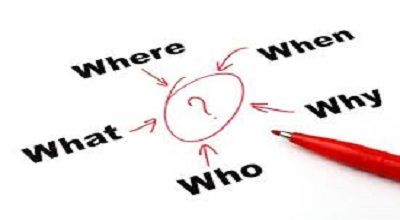Good Question and a Bad Question
The quality of a question depends on various factors, and what makes a question “good” or “bad” can be subjective in some cases. However, here are some general distinctions between a good question and a bad question:
Good Questions
Clear and Concise:
- Good questions are clear and easy to understand.
- They are concise, focusing on a specific topic or issue.
Relevant:
- Good questions are directly related to the context or topic of discussion.
- They contribute meaningfully to the conversation.
Open-ended:
- Good questions often encourage thoughtful and detailed responses.
- They don’t have a straightforward yes/no answer, promoting discussion and exploration.
Well-Structured:
- Good questions are organized and well-structured.
- They avoid ambiguity and provide context when necessary.
Purposeful:
- Good questions have a clear purpose or goal.
- They are asked to gain insights, solve a problem, or foster understanding.
Respectful:
- Good questions are respectful in tone and considerate of the feelings and opinions of others.
- They create a positive and inclusive atmosphere for discussion.
Bad Questions
Vague or Ambiguous:
- Bad questions lack clarity and may be difficult to understand.
- They often lead to confusion and can result in irrelevant or unclear answers.
Irrelevant:
- Bad questions are not related to the topic at hand.
- They can derail the conversation and waste time.
Closed-ended:
- Bad questions can be answered with a simple yes or no.
- They don’t encourage meaningful discussion or exploration.
Loaded or Biased:
- Bad questions may contain assumptions, bias, or loaded language.
- They can influence the respondent and lead to skewed or incomplete answers.
Poorly-Structured:
- Bad questions may lack organization and coherence.
- They can be confusing or difficult to follow.
Lack of Purpose:
- Finally, bad questions may seem aimless or irrelevant.
- They do not contribute meaningfully to the conversation.
Summary
In summary, the effectiveness of a question can also depend on the context and the specific goals of the conversation or inquiry. It’s important to be mindful of the situation and tailor your questions accordingly.
